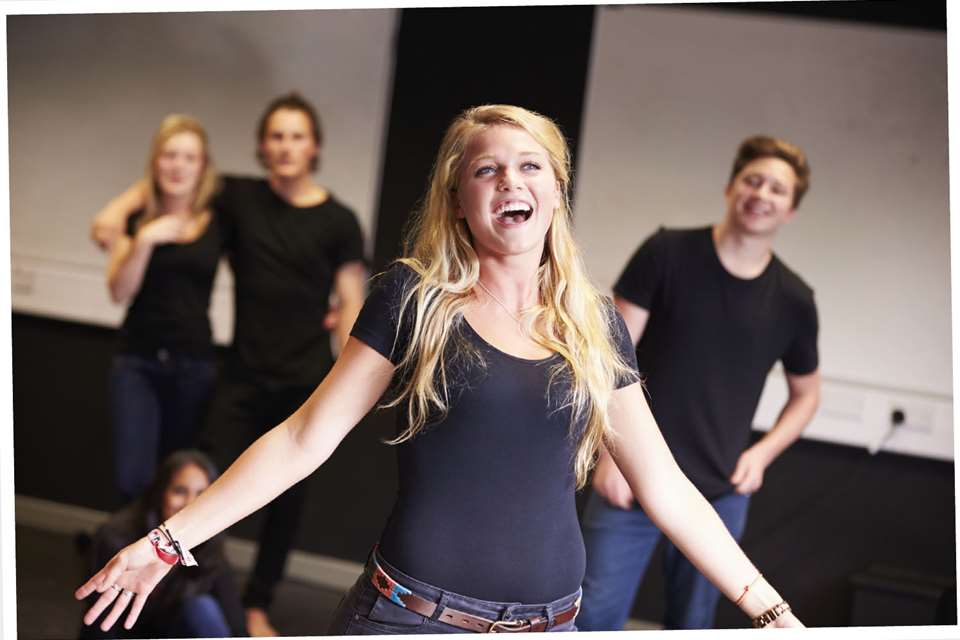Going Solo: Trinity College London's Communication Skills exams
Carolyn Griffith
Wednesday, March 1, 2023
Hear my voice! Trinity College London examiner Carolyn Griffith gives her point of view on the new Communication Skills courses.

Adobe Stock / NTL Studio
The way we all communicate with each other has changed dramatically over the Covid pandemic. Years of home study and online teaching have affected social interaction and physical and vocal confidence. Now that we're working face to face again, we're aware that some of our youngest candidates have known nothing but virtual communication for years. While conducting Trinity exams in India recently, the vice principal of a school emphasised the importance of face-to-face Communications Skills exams, saying that post-pandemic kids preferred to ‘text rather than talk’ and she'd noticed issues with eye contact, confidence and expression. It's a delight to be back in the room meeting candidates in person as they resume their physical journey through the grades.
What's on offer?
In many ways the solo Communication Skills exams are designed to allow candidates to become the most authentic communicators they can be. There's flexibility in the specifications to allow candidates to choose subjects that resonate with them on a personal level. We see presentations on climate change, global warming, gender, animal welfare and many local issues. As long as the material is well organised and the language and level appropriate for the space and audience, the manner of the presentation and conclusions drawn is the candidate's own choice.
But there are rules! At Grade 4, the technical language of voice production is introduced, and candidates are expected to be familiar with the meaning and application. They'll often be asked to give examples of where these technical skills have been used in their work. This terminology is reinforced and added to through the progression of grades. By the time the candidates have reached the advanced levels we're looking for a wide-ranging synthesis of these skills and a sense of authority in the space. These techniques are building blocks that allow candidates to have more control over their voice and body and a knowledge of safe practice.
What are Communication Skills exams?
Trinity College London examines candidates at three different levels: Foundation (Grades 1-3), Intermediate (Grades 4-5) and Advanced (Grades 6-8) across four main areas: communication, interaction, analysis and performance. At Foundation level, candidates give talks based on personal experience and engage in conversation with the examiner about things they feel personally connected to, whether it's their favourite subjects at school or their preferred times of the day. At Intermediate level, we introduce the idea of a defined audience and topics are based on a particular cause or charity. Candidates are encouraged to explore different techniques for different audiences. In the Advanced grades, candidates present to an imagined audience of at least 20 people and the topics include business and social issues and the wider application of the communication process. Key skills are introduced: presenting a CV at an interview, analysis of an advertisement and shaping opinions spontaneously in reaction to unseen materials.
What are we looking for?
We're looking for fluency and control as candidates move through the levels, and more importantly, personal connection and ownership of the material: an understanding of how to bring the subject to life for the chosen audience.
The one thing we're not looking for is for candidates to parrot learnt text. We do not expect performance and techniques to be perfect in the early grades. The specifications encourage candidates to begin the process of research, to start shaping thoughts and explore the differences in performance styles between the formal and informal. We're not looking for somebody else's version of how to ‘do’ communication skills but an imaginative connection to the material, realised through a developing range of technical skills. Running throughout the course is the development of independent thinking.
Who are Communication Skills exams for?
Many candidates come to Communication Skills exams because they want a framework to build and develop their personal confidence. Some candidates and schools see Communication Skills exams as preparation for university interviews, honing personal presentation, organising thoughts and engaging confidently with new people. Many value the exams as preparation for job interviews and the job market.
As the international language of business, many candidates – especially in our global markets – find increased fluency in English and the techniques on offer, useful. While some candidates see a future for themselves in the media or public eye, others develop a broad awareness of the importance of successful communication in relationships, school and work life. No matter how or why people are drawn to the exams, the net effect is a solid foundation for personal and professional growth. Communication skills are lifelong skills and learning them should be personally enriching and fun!
trinitycollege.com/qualifications/drama/2020-grades/communication-skills









